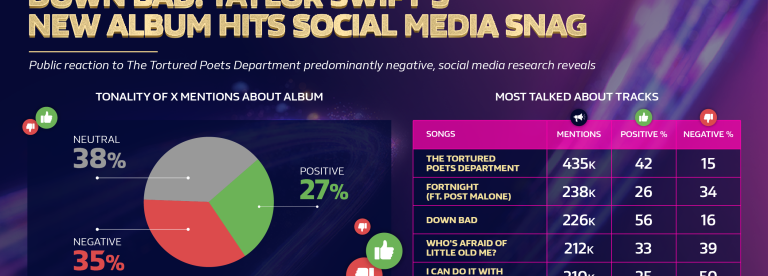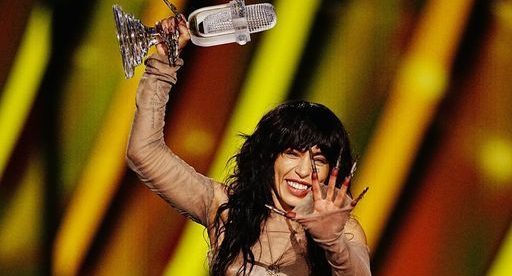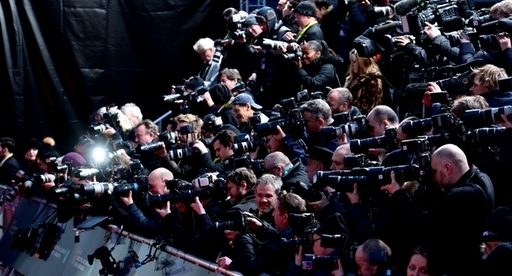TV
Glastonbury Festival: A Pyramid Built on Rock
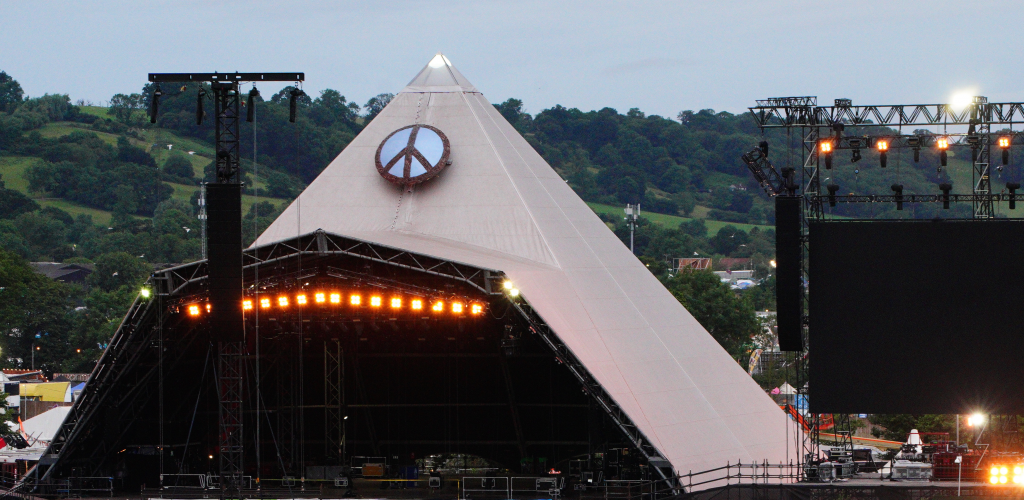
Rock artists and bands make up a staggering 71% of the total headlining performances at Glastonbury’s Pyramid Stage, according to research from William Hill.
The Glastonbury Festival’s Pyramid Stage has witnessed a rich and diverse tapestry of musical performances since its inception in 1971, but rock acts have consistently held a leading role throughout its 52 years and 36 editions, helping to shape the festival’s identity and captivate audiences year after year.
It conveys an interesting inclination of Glastonbury to stick to its roots and tradition, despite the ever-changing and evolving landscape of UK music. To put into context how dominant the genre has been, the next most frequent music category is pop – which has seen a recent surge after headlining performances from the likes of Adele (2016), Ed Sheeran (2017) and Billie Eilish (2022) – but still only makes up 13% of the 108 total acts.
Hip-hop/rap has likewise been a much more prevalent genre since the turn of the millennium. Up until 2008, the Pyramid Stage had never seen a hip-hop headline performance, only for Jay-Z to break the trend by delivering a powerful set in the 27th edition of the festival. Despite only contributing to 4% of overall headliners, three of the last five festivals have comprised acts from the genre, including Kanye West (2015), Stormzy (2019) and Kendrick Lamar (2022) – perhaps signalling a different approach from the festival organisers.
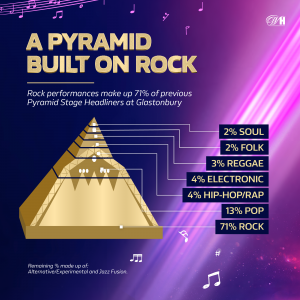
Evolution key to rock’s durability
When examining the prevalence of rock over the years, it’s key to note the genre’s flexibility and ability to evolve which allowed it to transcend different generations and eras of music.
The late 1970s and 1980s brought forth a wave of progressive and alternative rock acts, with Genesis, Peter Gabriel, and Jeff Beck showcasing their virtuosity in 1978, while New Order, Hawkwind, and Gong brought post-punk and progressive rock to the forefront in 1981. The Smiths, The Waterboys, and Weather Report enriched the festival with their distinctive sounds in 1984.
The 1990s saw the rise of Britpop and alternative rock, with bands like Oasis (1995), Pulp (1995), and Blur (1998) taking the Pyramid Stage by storm. This era marked a shift towards rock acts with a more eclectic and experimental approach, with The Prodigy (1997), Primal Scream (1998) and R.E.M (1999) at the forefront of showcasing the diversity within the genre.
Rock acts continued to dominate the Pyramid Stage in the new millennium. Coldplay, Muse, and Arctic Monkeys each delivered performances on two or more occasions that charmed audiences with their timeless anthems, whilst the festival also welcomed international rock legends like Metallica (2014) and Foo Fighters (2017) – demonstrating the global appeal of the genre.
While the British music scene continually evolves, Glastonbury has remained a haven for rock acts, providing a platform for both established rock legends and emerging talents to showcase their ability. With Arctic Monkeys headlining the Friday in this year’s edition, it seems rock continues to have an undying influence on Glastonbury and lies at the very heart of the festival’s roots.
Coldplay: Glastonbury’s Pyramid Stage Stalwarts
Glastonbury Festival, the epitome of British music culture, has seen an array of legendary acts gracing its iconic Pyramid Stage over the years. From the timeless tunes of Oasis to the electrifying performances of Muse, the festival has witnessed some of the greatest names in music history.
However, it is Coldplay who seem to have resonated with festival-goers and organisers most significantly. No act or artist since the Pyramid Stage’s inception in 1971 has ever topped their four headlining performances – with The Cure level with them after their 2019 appearance – making the British band one of the most enduring and influential headliners in Glastonbury’s illustrious history.
Coldplay’s Glastonbury journey began in 2002 when they first graced the stage with their uplifting melodies and anthemic choruses. Their performance left a lasting mark on both audiences and the organisers, setting the stage for their subsequent appearances in 2005, 2011 and 2016.
Frontman Chris Martin has also demonstrated an affinity with collaborations at Glastonbury. In 2019, Martin made surprise appearances on stage alongside headliner Stormzy, infusing the festival with a dynamic fusion of their respective styles. Additionally, he joined forces with Kylie Minogue during her legendary Sunday afternoon set.
Coldplay’s last headline performance at Glastonbury took place in 2016, a year when we bid farewell to legendary figures such as David Bowie and Prince. Coldplay’s emotionally charged set in 2016 served as a poignant tribute to these departed icons, further intensifying the collective sense of reflection and celebration of their musical legacies at the festival.
Should Coldplay headline another year at Glastonbury, they will further solidify their status as part of the festival furniture. They are priced at 10/1 to headline next year’s edition, with Taylor Swift the current 6/4 favourite.
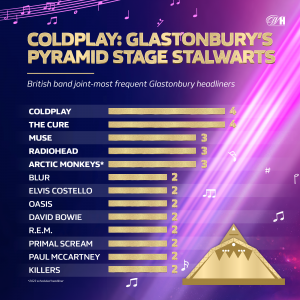
The Cure: Sharing the Throne
Another British band, The Cure ,stand shoulder to shoulder with Coldplay, having achieved the same number of headlining performances at Glastonbury’s Pyramid Stage. Their appearances in 1986, 1990, 1995, and 2019 highlight their influence and ability to captivate audiences across different eras. From melancholic hits like ‘Lovesong’ to the hauntingly beautiful ‘Pictures of You’, The Cure’s performances have taken festival-goers on a mesmerising journey through their versatile discography.
While Coldplay and The Cure stand as the festival’s most frequent headliners, other bands have also made their mark on Glastonbury’s esteemed Pyramid Stage. Muse, with their electrifying performances, have graced the stage three times (2004, 2010, 2016), whilst Radiohead, known for their boundary-pushing artistry, have also headlined three times (1997, 2003, 2017), both bands creating transcendent moments in Glastonbury’s history.
One band with two headlining performances under their belt, Arctic Monkeys will make a highly-anticipated return to headline this year’s edition on the Friday night after previous performances in in 2007 and 2013. Their appearance will make them the joint-third most frequent headliners in the festival’s history. From the gritty rock riffs of ‘I Bet You Look Good on the Dancefloor’ to the iconic rhythms of ‘Do I Wanna Know?’, their infectious guitar-driven anthems have become synonymous with this generation’s music scene.
Several other notable acts have headlined Glastonbury twice, including Blur (1998, 2009), Elvis Costello (1987, 1989), Oasis (1995, 2004), David Bowie (1971, 2000), R.E.M. (1999, 2003), Primal Scream (1998, 2003), and The Killers (2007, 2019). Each of these bands has brought their unique sound and stage presence to Glastonbury, leaving their own unique mark on the festival’s vibrant history.

